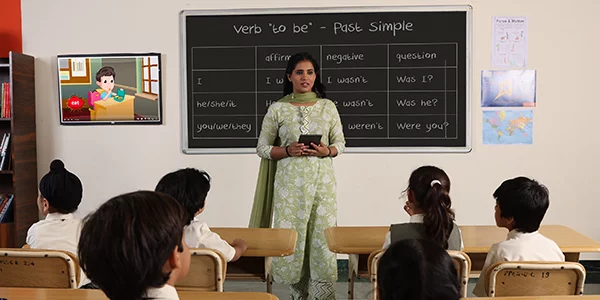Expert Primary Science Tuition Singapore for Understanding Complex Concepts
Expert Primary Science Tuition Singapore for Understanding Complex Concepts
Blog Article
Checking Out the Various Mentor Strategies in Key Science Education And Learning Today
The landscape of primary scientific research education and learning is advancing, with numerous training strategies getting importance in contemporary class. Inquiry-based discovering, hands-on experiments, and the integration of modern technology are redefining exactly how educators involve young minds. In addition, joint techniques and set apart instruction are being utilized to satisfy the diverse demands of trainees, boosting both engagement and understanding. As we examine these methods, concerns occur concerning their efficiency and the ramifications for future academic methods. What might these shifts in method mean for the next generation of students?
Inquiry-Based Learning
Inquiry-Based Learning (IBL) is a pedagogical method that encourages pupils to check out clinical concepts through doubting, investigation, and hands-on trial and error. This approach emphasizes the function of students as energetic individuals in their knowing, advertising crucial reasoning and problem-solving skills. By involving with real-world inquiries, trainees come to be inspired and curious, which improves their understanding of scientific principles.
In IBL, teachers serve as facilitators, directing trainees as they browse their queries instead of providing details directly. This student-centered strategy enables distinction, accommodating various discovering styles and rates. Trainees establish skills in formulating hypotheses, making experiments, and evaluating information, which are critical for scientific proficiency.
Furthermore, IBL cultivates collaboration among students, urging them to share findings and ideas. This collective inquiry promotes social skills and a feeling of community within the class. The procedure of inquiry motivates resilience, as pupils discover to embrace failure as a stepping stone towards understanding.
Hands-On Experiments
Hands-on experiments are an essential element of efficient scientific research education and learning, enhancing the principles of inquiry-based understanding. These experiments permit students to involve directly with scientific concepts, promoting a much deeper understanding with experiential learning. By adjusting products and observing results, young learners can comprehend abstract theories in substantial ways.
Such tasks promote vital reasoning and analytical skills, as pupils assume outcomes, conduct experiments, and assess outcomes. This process motivates them to ask inquiries, improve their understanding, and establish a scientific mindset. Moreover, hands-on experiments can be customized to varied learning designs, making sure that all trainees have the opportunity to engage meaningfully with the content.
Additionally, hands-on experiments frequently motivate partnership amongst peers, promoting synergy and communication abilities. Operating in groups allows pupils to share concepts, go over findings, and find out from each other, which improves their general educational experience.
Incorporating hands-on experiments into the main scientific research curriculum not just enriches the finding out atmosphere however likewise cultivates a long-lasting interest in scientific research. By actively getting involved in their education, trainees are most likely to create an interest for clinical inquiry that prolongs past the class.

Modern Technology Assimilation
Incorporating innovation right into key science education and learning has ended up being progressively important in promoting pupil engagement and enhancing discovering results. Making use of digital devices, such as interactive simulations, digital labs, and educational software application, provides trainees with opportunities to check out clinical principles in innovative means. These sources facilitate a deeper understanding of complex subjects by allowing learners to envision and control variables that would be not practical in a standard classroom setting.
Furthermore, modern technology combination motivates individualized discovering experiences. Students can proceed at their very own rate, revisiting tough concepts via multimedia resources, which accommodate various learning designs. This versatility not just sustains private growth yet additionally grows a sense of freedom in students.
Additionally, modern technology offers as a bridge to real-world scientific research, attaching students with existing research and specialist contributions. Access to on-line data sources and scientific journals widens students' point of views on clinical questions and cultivates vital believing skills.
Collaborative Discovering
Collaborative understanding plays a vital function in primary scientific research education by cultivating team effort and interaction abilities amongst students. This technique urges learners to function together, share knowledge, and engage in analytical, which improves their understanding of scientific principles. By getting involved in team activities, pupils find out to articulate their ideas, pay attention to diverse perspectives, and work out remedies, all of which are crucial abilities in both real-world and academic contexts.

Research study indicates that joint learning can cause raised inspiration and engagement in science subjects, as students find satisfaction in shared experiences (primary science tuition Singapore). Furthermore, this approach prepares students for future collaborative endeavors, equipping them with the skills necessary for effective synergy in greater education and expert environments. Eventually, accepting collaborative understanding in main science education can dramatically enrich the understanding experience and promote a much deeper understanding of clinical query
Separated Guideline

Differentiated guideline can manifest in different methods, such as varying the web content, processes, learn this here now or products of discovering. Instructors may use tiered jobs that provide differing degrees of complexity, allowing pupils to work at their corresponding preparedness degrees. Additionally, adaptable organizing techniques can help with cooperation amongst students with different abilities, promoting peer understanding.
Assessment plays a critical duty in this technique, as it informs instruction and aids instructors comprehend each trainee's one-of-a-kind demands. Formative evaluations, such as observations and quizzes, can lead educators in readjusting their methods to enhance discovering results. primary science tuition Singapore. Eventually, by implementing distinguished instruction in main scientific research education and learning, instructors can cultivate a more efficient and fair discovering environment, equipping all pupils to reach their full potential in comprehending clinical sensations
Verdict
In recap, the varied training strategies in main science education, consisting of inquiry-based discovering, hands-on experiments, technology assimilation, joint understanding, and differentiated guideline, jointly add to a more reliable knowing atmosphere. These methods advertise crucial reasoning, analytic skills, and a much deeper understanding of clinical ideas. By carrying out these methods, teachers can create appealing and helpful class that attend to the varied needs of students, inevitably fostering a long-lasting passion in science and enhancing scholastic accomplishment.
Inquiry-Based Understanding (IBL) is an instructional approach that urges trainees to check out scientific concepts through doubting, investigation, and hands-on trial and error.Joint discovering plays a vital function in primary scientific research education by promoting team visit this website effort and interaction abilities amongst pupils.Research study indicates that collaborative understanding can lead to raised motivation and interaction in science topics, as students find satisfaction in common experiences.In fostering an inclusive knowing setting, set apart instruction emerges as a crucial method to fit the varied requirements and capacities of pupils in key scientific research education. Eventually, by applying set apart direction in primary science education, teachers can cultivate an extra fair and reliable understanding atmosphere, equipping all students to reach their full capacity in understanding clinical phenomena.
Report this page